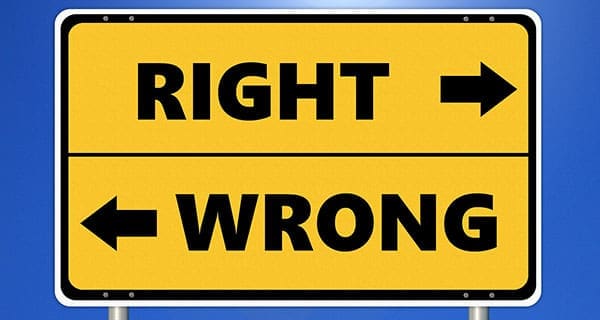 The most common criticism of capitalism is that it has no history of working for the benefit of society as a whole.
The most common criticism of capitalism is that it has no history of working for the benefit of society as a whole.
You may be surprised to learn that major schools of thought believe this is a virtue, not a fault of capitalism. If you had asked the late Prof. Milton Friedman, former head of the Chicago school of monetary economics, he’d probably have frowned and replied: “Social responsibility is a fundamentally subversive doctrine … there is one and only one social responsibility for business – to use its resources and engage in activities designed to increase its profits. …”
Today, the public face of capitalism is increasing at odds with the greater good. As far as the public are concerned, CEO (chief executive officer) ethics is something of an oxymoron. The challenge for capitalism is: will it continue to enjoy its traditional freedom of action – the full run of its “animal spirits,” as British economist John Maynard Keynes described them?
Clearly, absent of meaningful ethical reforms at the top, the very existence of a self-regulating individualism could be imperilled.
But what are ethics?
Ethics are a body of moral understanding that help us evaluate the rightness (or goodness) of human conduct. Morals and ethics play important roles in sustaining the quality of our relationships on a personal basis and between groups.
It’s increasingly clear that ethics are much more than a side issue in capitalism; ethics are essential to economic growth and development, providing vital behavioural underpinning to free-market institutions in a civil economy. Informal (largely voluntary) ethics are more effective in delivering appropriate behaviour than the formal authority of civil and/or criminal law.
People in business, like all other individuals in society, are required to make decisions and take actions that affect themselves and others. The principles that underlie and justify actions are motivated by various factors: some individuals believe they are commanded by God to follow certain pre-ordained standards; others are motivated by a sense of duty, or by their conscience informed by an overall sense of justice and/or the basic rights of others. Some are egocentric, motivated by a ‘what’s in it for me’ perspective, while some consider their self-oriented actions through a lens of leading a virtuous life.
By far the most popular moralist for CEOs is author Ayn Rand. Rand was famous (infamous to many) for developing the philosophy of objectivism. It’s an ethical theory rooted in the individual with a profound belief in life as an end in itself. Rational individualism is its central focus. According to Rand, “Man – every man – is an end in himself, not the means to the ends of others. He must exist for his own sake, neither sacrificing himself to others nor sacrificing others to himself.”
Despite many detractors, Rand’s philosophy remains one of the most powerful forces in business ethics. Objectivism’s intense focus on the heroic producer class, and its limited definition of self, informs and justifies much of the self-centredness and lack of concern for social consequences that characterize modern business practices.
But there are countervailing voices. The theory of capitalism and business practices owe a great debt to the classical liberals of the late 18th and early 19th centuries, most importantly Adam Smith, David Ricardo and Thomas Malthus.
On the question of social responsibility, opinions varied among early liberals. But Smith, in The Wealth of Nations (1776), proposed the idea of a hidden hand operating within capitalism: “It is not from the benevolence of the butcher, the brewer, or the baker, that we expect our dinner, but from their regard to their own self-interest. We address ourselves, not to their humanity but to their self-love, and never talk to them of our own necessities but of their advantages.” Many people believe that The Wealth of Nations implies that self-interest transmits itself automatically to the public good.
But digging deeper, we find a more complete explanation of the hidden hand in Smith’s earlier work, The Theory of Moral Sentiments (1759). Smith believed that three factors – prudence, justice and benevolence – govern an individual’s economic motivations.
Prudence, for Smith, is relatively straightforward: it’s simply self-interest by another name. He believes that everyone, whether prince or peasant, has this sort of motivation.
A sense of justice is more complex. For Smith, it implies that rational individuals can be depended upon to obey the law most of the time.
Benevolence is where Smith gets more controversial and where he departs clearly from Rand’s selfish individualism. For Smith, benevolence implies some sort of interest in people to do the right thing even in the absence of specific law. Smith felt that social forces and an individual’s moral goodness were powerful enough that people could be trusted to behave ethically most of the time.
We might say that the hidden hand for Smith is really personal morality. It’s the consistency with which individuals do the right thing, in essence self-regulate their behaviour, that creates the general freedom of action in the capitalist system.
Much has changed in the centuries since Smith first postulated his concept of the hidden hand. However, the rise of angry populism across the western world has illustrated one critical truth: CEOs and other business leaders need to heed the advice of Smith and consciously align their actions with the greater good – otherwise capitalism, as we have known it, will fail.
Robert McGarvey is chief strategist for Troy Media Digital Solutions Ltd., an economic historian and former managing director of Merlin Consulting, a London, U.K.-based consulting firm. Robert’s most recent book is Futuromics: A Guide to Thriving in Capitalism’s Third Wave.
The views, opinions and positions expressed by columnists and contributors are the author’s alone. They do not inherently or expressly reflect the views, opinions and/or positions of our publication.

